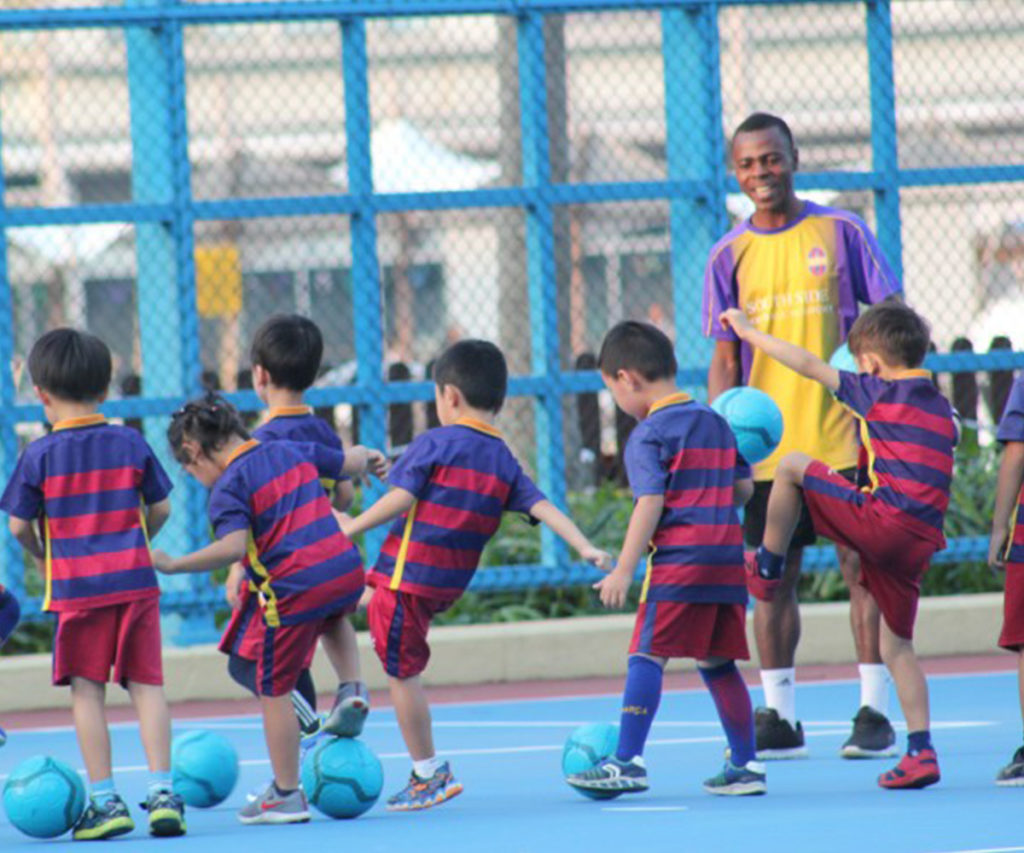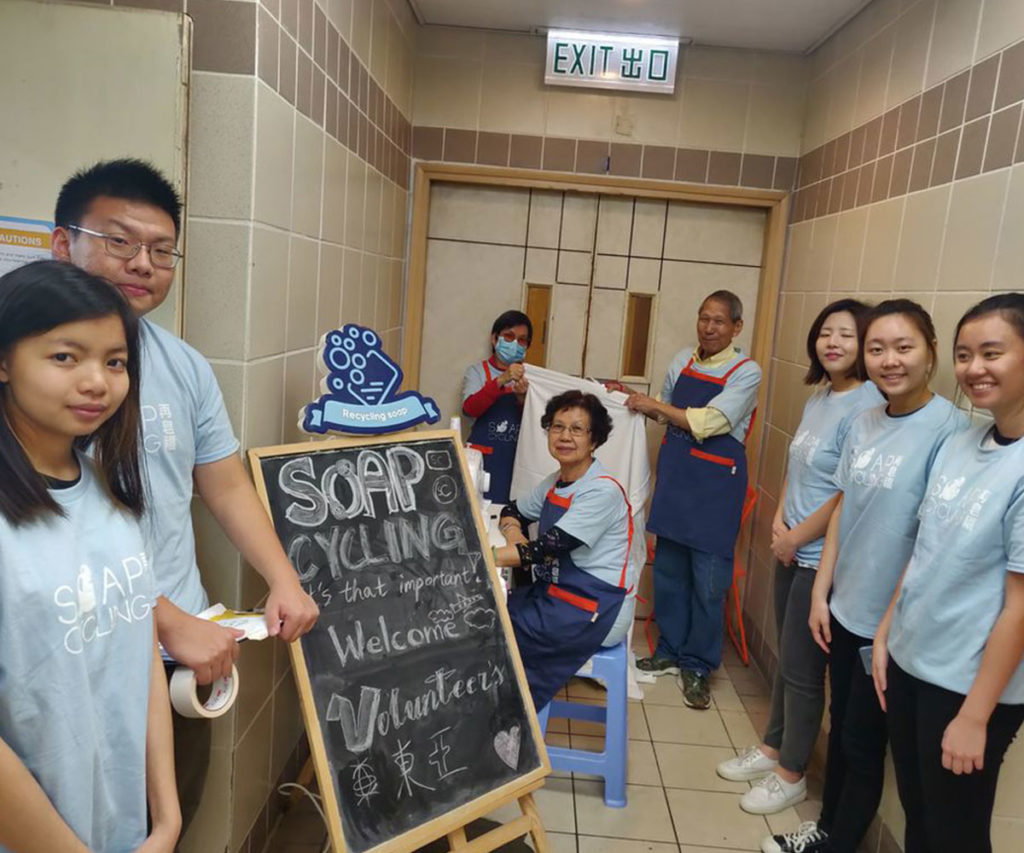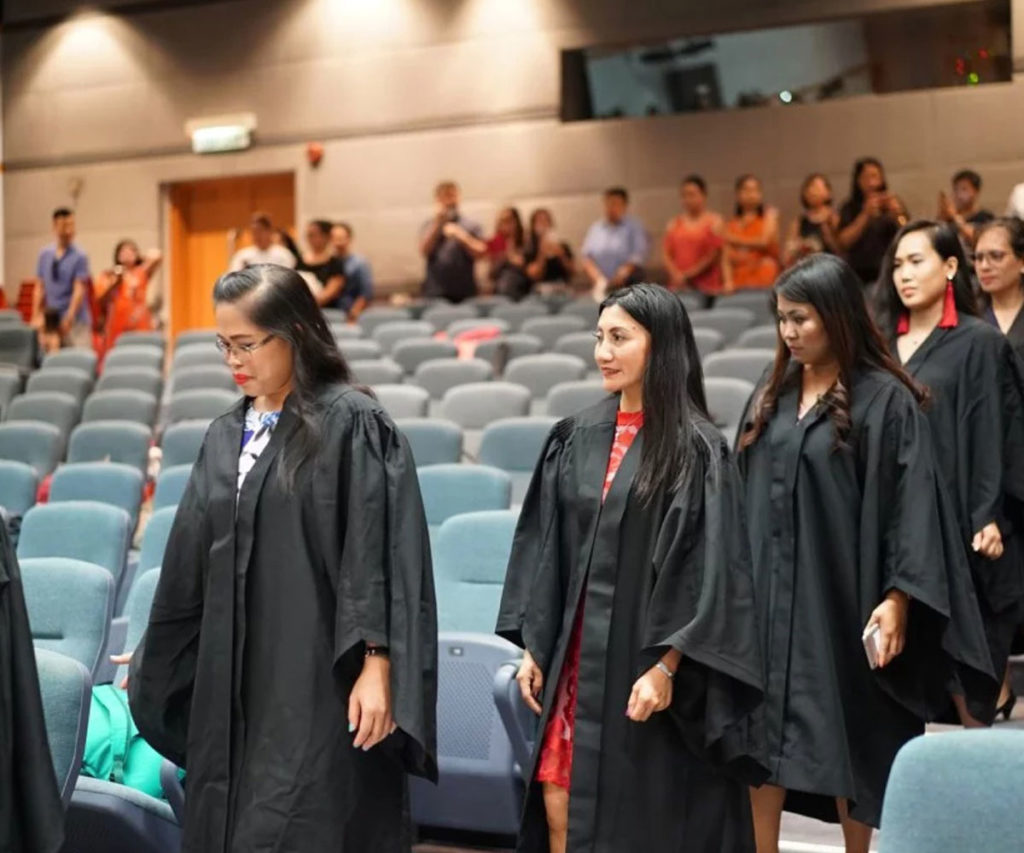Harris Cheng admits that he had no clue about entrepreneurship when he joined Impact Lab in 2016. Today, he is a serial entrepreneur running two successful startups with his co-founders, to help underutilized talents find freelance work and take the stress out of content creators by helping them auto-generate content marketing videos.
Read our interview with Harris to find out how Impact Lab opened his eyes to an alternative career pathway that few were talking about back then, why he thinks being in the present makes a good startup founder, and why he thinks Impact Lab students should not see it as a course but as an opportunity to understand themselves.

Which year did you join the Impact Lab Course?
I joined the Impact Lab Course during the second semester of my third year of study at The University of Hong Kong (HKU), so that was the Spring semester of 2016.
I was working for SIPO (Social Impact Public Offering), a new non-profit making fundraising model for early-stage high quality social businesses to enable easier access to growth capital through crowdfunding. The work SIPO intended to do would later be continued by what would become Foundation for Shared Impact (FSI). After I completed my work for the first semester, David Bishop, the course instructor, asked me to stay for another semester because I already had the experience of running SIPO.
With the opportunity that the course gives to students to learn how to run an impact startup, I think it’s beneficial to students to work for at least two semesters. The General Manager at that time, Jeffrey Lam, had also been working at SIPO for more than a year when I met him. I followed his footsteps and continued working at SIPO, which helped my learning journey in exploring entrepreneurship and learning to manage projects on my own. Jeff and I later became friends and we remain connected to this day.
What were your role and responsibilities at SIPO?
My main contribution to SIPO was design, photography, and videography. I was responsible for making a promotional video for SIPO at that time. I interviewed David about his vision for SIPO, and I made an introduction video to explain the idea of SIPO.
I didn’t have any specific role during the first semester. By the second semester, I wanted to take on a more meaningful role and became SIPO’s Head of Marketing, leading the new cohort of students to develop the website, design promotional materials, and organize events. It was a much broader experience for me as I began to take on a leadership role. That proved to be an invaluable experience for my future.
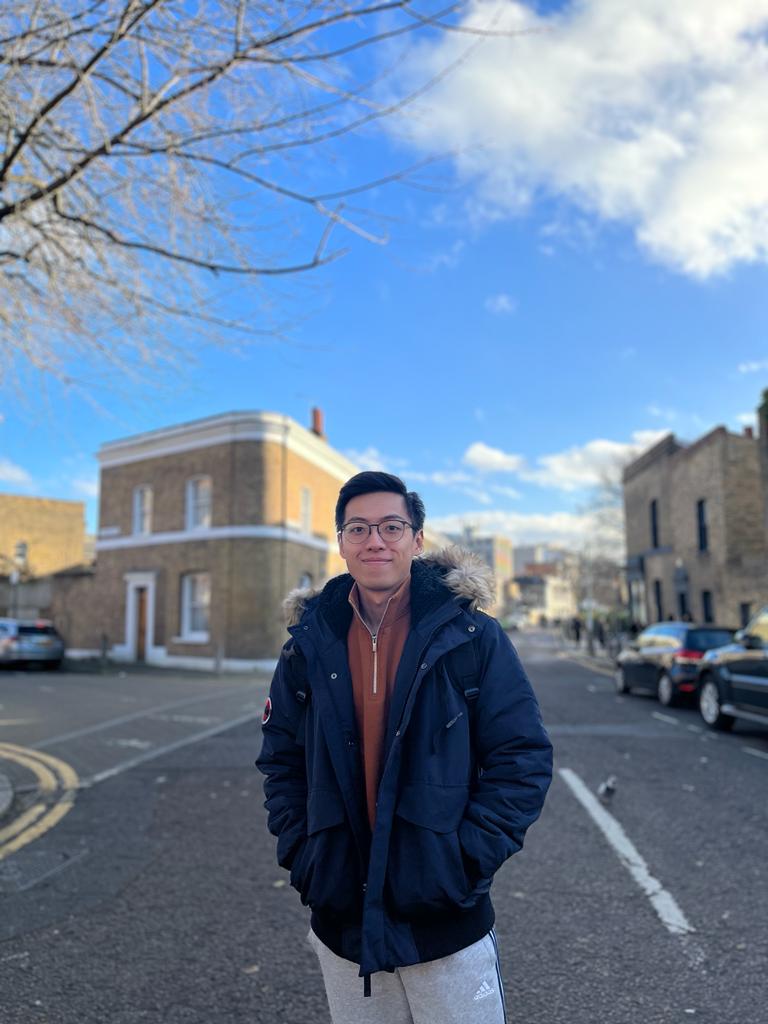
Why did you apply for the Course and subsequently, an internship with SIPO?
I suck at exams, so free elective courses without exams usually appeal to me. I’m good at creating stuff from scratch and collaborating with people, and Impact Lab gave me the opportunity to draw on a blank canvas.
I didn’t really know much about entrepreneurship back then, and starting up your own company wasn’t a big thing in Hong Kong. The thinking back in those days was that to start up your own business, you would need to have a lot of capital. It never occurred to me that I would start my own business one day – it was something inaccessible and if I were to do it, I thought it would be some 30 years later.
After joining Impact Lab and SIPO, I became interested in contributing to an idea and a project that was still in its early stages.
What was your greatest achievement during the internship?
It would be creating the promotional video for SIPO. I think the video was used for a couple of years after I left!
What was your biggest takeaway from the internship?
The ability to build something from scratch. Before joining SIPO, I had no idea what startups or social enterprises were, so working at SIPO was a transformative experience for me. I asked a lot of questions. I asked David, who is probably the busiest person at HKU, and I asked Jeff, in order to understand the vision and mission of SIPO. What’s interesting is that after gaining a thorough understanding of the initiative, I was actually able to contribute to it, under the guidance of leadership. To start from zero and see it being developed into something was a great experience.
In what ways did your Impact Lab experience at SIPO influence your career path in entrepreneurship?
The experience changed me and my perspectives. Most of my friends were looking to work in consulting, finance, and banking. I didn’t come across anyone who wanted to start their own thing. Working at SIPO made me reassess whether I would like to work in a corporate setting, and the idea of rolling up my sleeves to build something from scratch appealed to me.
To be honest, I didn’t really delve into the pros and cons of working in a corporate. I was more emotionally driven as an ENTJ type of personality. Intuitively, I knew that a corporate job wasn’t for me. What my experience at SIPO did was that it opened my eyes to a different pathway, and it helped me build the confidence I needed to explore this pathway that few people were talking about at that time.
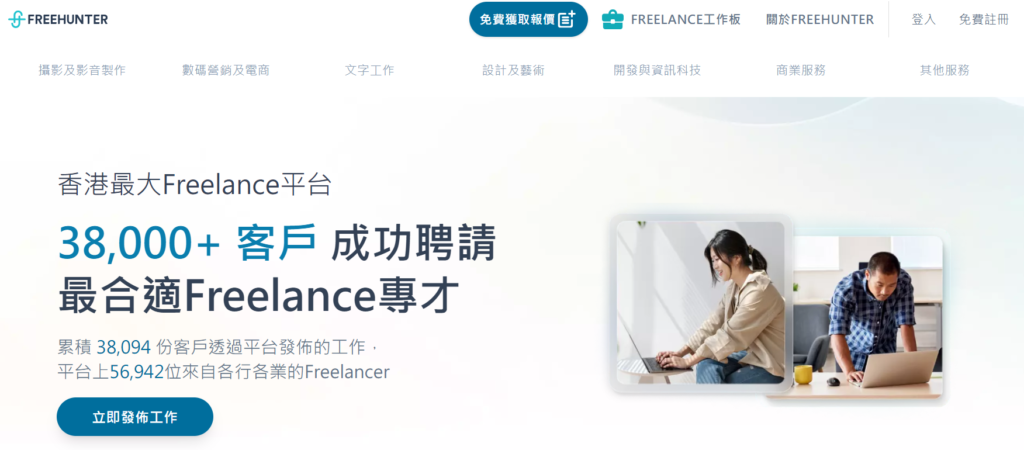
As a serial entrepreneur today, can you tell us a bit about your different startups?
I currently run two companies with my co-founders.
Freehunter is a freelance job matching platform based in Hong Kong, with user bases in Southeast Asia, mainly from Hong Kong, Taiwan, and Singapore. We started the company in 2017, right after I graduated from HKU. It was actually David who first mentioned the freelance service marketplace Fiverr to me, although I don’t think he would know, even today, that he inspired me into starting Freehunter. I wanted to create something similar for the Hong Kong audience, who communicates mainly in Cantonese, targeting creative jobs such as singing, painting, videography, and photography etc.
Today, Freehunter is one of the five biggest freelance job matching platforms in Asia, with more than 100,000 users, and has facilitated over US$20 million in transactions. Our vision has always been to help underutilized talents unleash their potential, tap into opportunities, and let their work speak for themselves.
There were a lot of failures in running Freehunter but I’m glad to have helped so many people find freelance work aligned with their skills and passion, and employers to find good-quality freelancers.
The second company is called Jupitrr. We pivoted many times. When we first started Jupitrr, it was a business networking app similar to Tinder. When we realized that the idea wasn’t working, we pivoted to five different ideas until we arrived at what Jupitrr is today – an AI video-maker. The amount of positive feedback we received from our segment of users, the practical use cases and the target audience we were able to identify, and the fact that we made much revenue in a short period of time were proof of concept.
What Jupitrr does is to help content creators and solo entrepreneurs produce content marketing videos. In talking-head videos, you would talk to the camera, and you would need to enrich the video with stock videos, subtitles, zoom-in and zoom-out effects. We want to automate these less creative processes for content creators because there is always a formula for what the audience wants to see in a video. So we enable users to auto-generate stock videos, subtitles, dimensions, trimming, silences, filler words all with just one click. We found out from our users’ experiences that they actually appreciate the speed of production far more than being pixel-perfect. In addition to AI, we also leverage machine learning to understand what the users want, what the content should be like for different templates, and how we can improve our product offerings.
We launched Jupitrr in September 2023, and today, we have 20,000 users, around 2,000 paying users, and made US$120,000+ in revenue. We are still a small company, but this is a good starting point for us. There are four people on our team, including the three co-founders. We are a fully remote team: I’m based in London, my co-founders are based in Canada, and our new teammate is based in India.
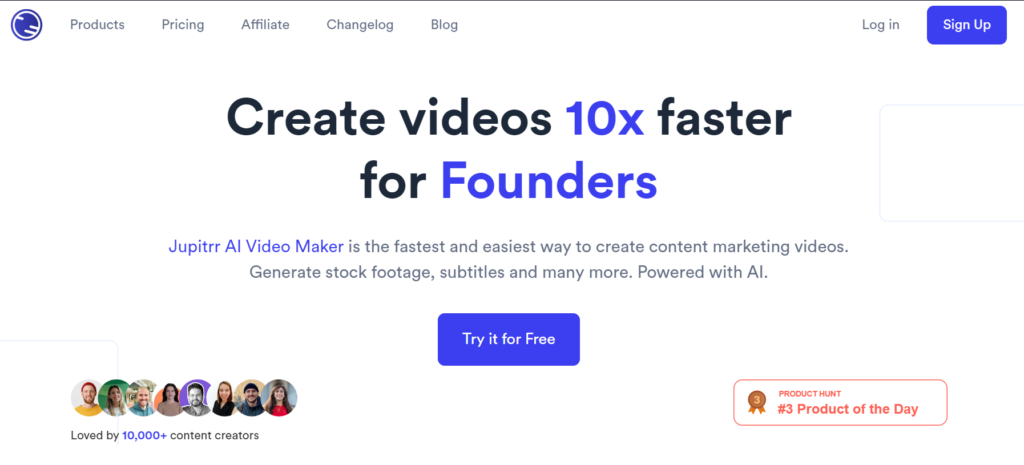
As someone who has founded a couple of startups and pivoted your business ideas a few times, what would you say are the keys to success?
There are several. Number one is to enjoy the process. I just came back from a three-week visit to Hong Kong, and I must say that I didn’t enjoy some aspects of living there – people are always rushing to the next thing and not enjoying the present. I have lived in Toronto, Manchester, and now London in the past two years. I wasn’t aware of the change but when I came back to Hong Kong, I immediately noticed how often people were in a hurry. I think it’s very important to take a step back from the busyness and appreciate the present moment. It’s the same with running a startup: you need to be happy with what you are doing right now, regardless of what achievements you have made or will make, be it winning an award, getting funding, or launching an IPO. Being present is a super underrated trait of a good startup founder. I love my work, I’m a workaholic, but I’m also an optimistic person and that helps me to be in the present.
The second key to success is to fail fast and keep experimenting. I used to be a perfectionist, trying to make things perfect, but that wasted a lot of time. I think quick iteration is key to success. If you iterate something new on a weekly basis, you will be able to create something within a month. I like to measure progress by weeks. The figures might be small at first glance, but added up, they are indications of huge progress when measured by a year. So make more daring challenges, fail fast and learn fast. You will gain so much more knowledge within a short time.
Last but not least, don’t give up. I’ve always been a persistent person since I was a kid. Of course, knowing when to give up and when to persist is an art to master. But if you believe in your mission, make incremental improvements, and keep going.
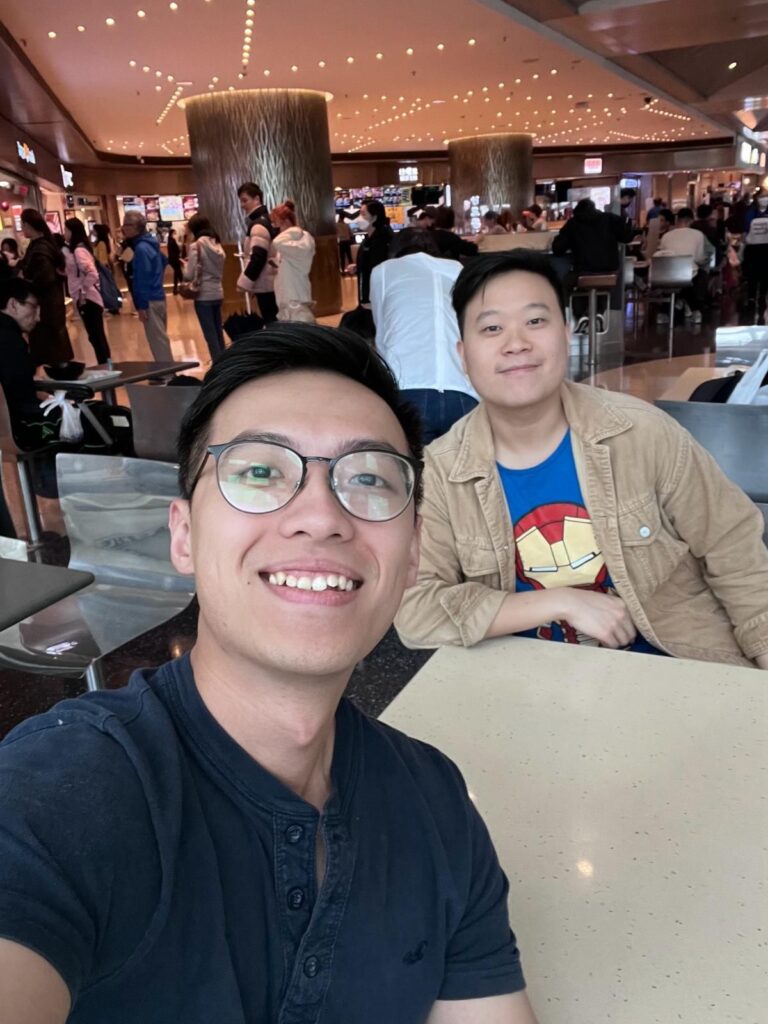
You gave inspiring insights on building relationships with co-founders. What advice would you give to aspiring entrepreneurs or entrepreneurs who are struggling to take their startup to the next level?
To ensure sustainability of your startup, you and your co-founders need to trust one another. Put your ego aside. Apologize when you are wrong. Working with your co-founders is like dating. You must always see them as part of your team, not just someone you split the revenue with, and definitely not as your enemy. What matters to you as a startup founder is the people around you, the memories you co-create, more than the money you make. In my old age, I would like to think back to the days when I worked with my co-founders on these companies, and to be able to remember that we enjoyed working together.
What is your take on youth empowerment?
On a macro level, it is important to offer experiences to young people. Impact Lab is very beneficial to young people as it promotes the culture of trying and experimentation without fearing failure, and it gives young people a glimpse of what it’s like to work at a startup. It takes time, courage, and luck for someone to understand who they are and what they want to do in their life. You’ve got to keep trying and experimenting to find and understand yourself, but you also need to be given the opportunities to do so.
On a micro level, people who want to empower youth need to be patient with young people’s questions. I’ve always loved to ask questions. When I was young, I was often told that I would know something when I was older, and I was like, “But I want to know now, so explain it to me!” It’s an unhealthy culture where grown-ups trivialize young people’s questions. So I think it’s important to be patient with young people’s questions and help them make sense of things in the world in whatever ways you can. Help them break free from the conventional ways of thinking about how one should live their life, because every individual is different, and there are many different ways to live.
What advice would you give to future Impact Lab students?
Don’t treat the Impact Lab Course like a course. It is the worst thing you can do. Don’t try to score an A; think about what you can do to help the company instead. My CGPA (Cumulative Grade Point Average) was pretty low until it took a big leap in the semester where I took the Impact Lab Course – because it gave me the flexibility and freedom to be myself and do what I enjoyed.
Obviously, Impact Lab is still a course that has a grading system, but if you really want to learn about entrepreneurship, try to free yourself from what other people think you need to do, and try to think about what you really want to do. Be outspoken about your ideas, learn to collaborate with others, and try to execute your ideas with your own hands.

